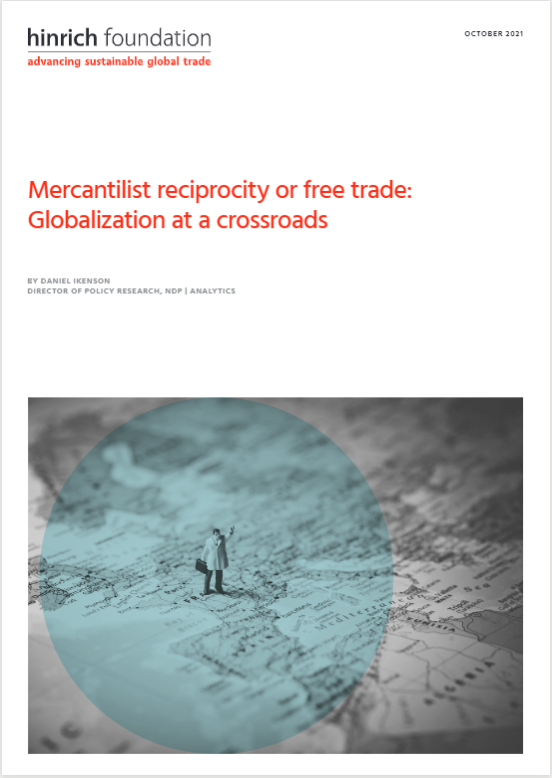Trade and geopolitics
Mercantilist reciprocity or free trade: Globalization at a crossroads

Published 19 October 2021
The global trading system was built on the shaky foundation of mercantilist reciprocity. This approach has reinforced a flawed way of thinking about trade that helps explain the rise of protectionism and the ease with which some governments flout their commitments to the trade rules in favor of unilateralism.
The case for free trade has always been a tough sell. Trade is an economic endeavor, but trade policy is the product of politics, where perceptions often matter more than facts. Study after study has shown that countries that are more open to trade grow faster than those that are relatively closed. The benefits of trade come from imports, which deliver more competition, greater variety, lower prices, better quality, and innovation. But when it comes to trading across borders or when our individual transactions are aggregated at the national level, we seem to forget these basic principles. We assume that the goal of exchange is to achieve a trade surplus. This view reflects a fundamental misunderstanding of international economics and the purpose of trade.
Domestic politics, national security concerns, and geopolitics conspire against the economics and the prospects for resuscitating multilateralism. Our collective challenge is to remind ourselves – indeed, to internalize – that trade barriers are not assets to deploy at the negotiating table, but impediments to domestic businesses, workers, and consumers.
Download this new paper by Dan Ikenson and ndp | analytics, which examines the challenges facing global trade as protectionism and unilateralism rise.
Download 'Mercantilist reciprocity or free trade: Globalization at a crossroad' by Daniel Ikenson:

Download the other papers in this Benefits of Trade series by Daniel Ikenson:
© The Hinrich Foundation. See our website Terms and conditions for our copyright and reprint policy. All statements of fact and the views, conclusions and recommendations expressed in this publication are the sole responsibility of the author(s).
Author
Daniel Ikenson
Daniel Ikenson is an economist and renowned international trade expert who has spent over 30 years analyzing, communicating, and influencing the formulation of US and global trade policy. In 2021, Daniel joined ndp | analytics after nine years as director of the Cato Institute’s Center for Trade Policy Studies, where he led a team of lawyers, economists, and political scientists conducting research on all manner of trade policy.
Have any feedback on this article?




